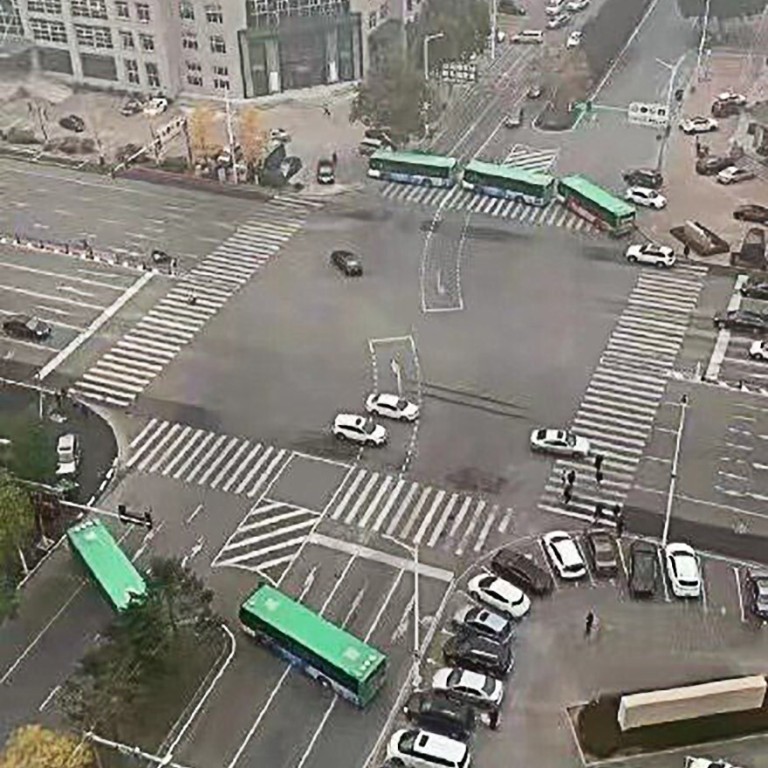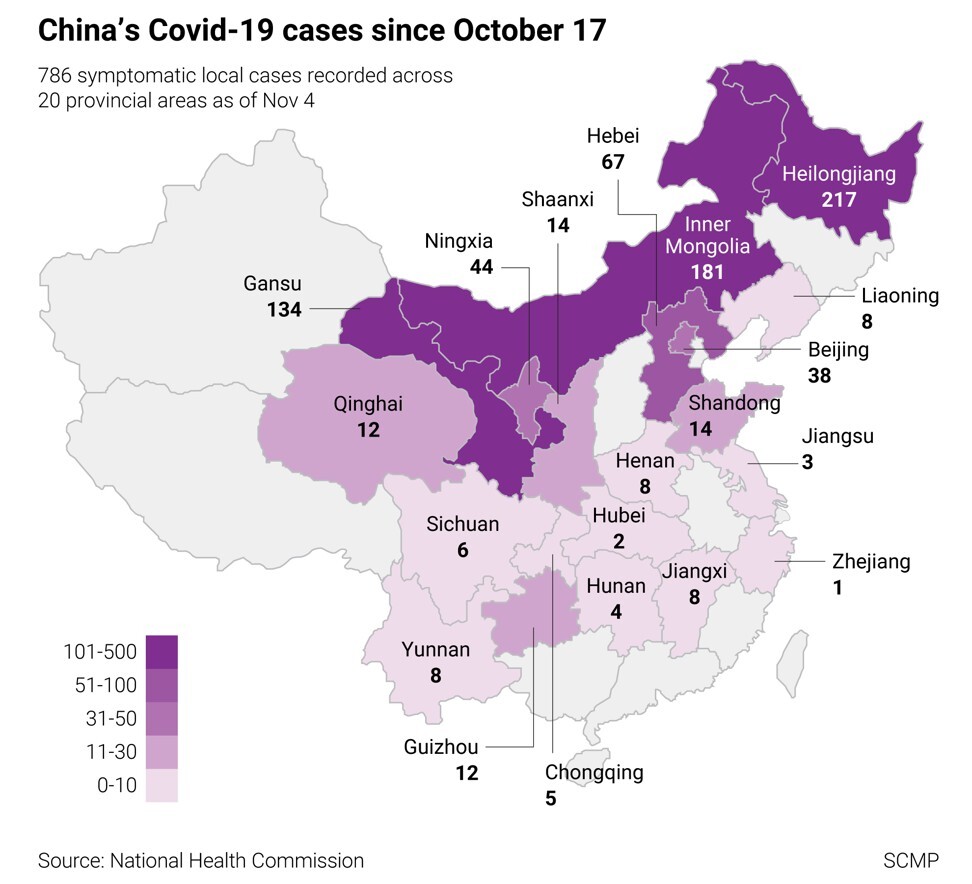
Chinese city turns traffic lights red as it raises Covid-19 barricades
- Zhuanghe closes roads to discourage travel after outbreak reaches nearby port of Dalian
- Country records 68 new local infections, falling from the midweek high, but Liaoning province moves to contain its first cases
Eight cases in the port city of Dalian were the first infections of the current outbreak in the province, which borders North Korea.
Dalian’s health authorities on Thursday asked residents not to leave the city unless necessary, after discovering the first infection. Local media reported that Zhuanghe, a city of about 820,000 people governed by the Dalian authorities, turned its traffic lights to red and halted road travel except for vehicles with special permission.
In addition to the 68 new symptomatic cases nationally, there were 10 imported cases and a further 42 asymptomatic cases, 20 of them imported.
The wave’s epicentre of Heilongjiang province, also in the northeast, has started vaccinating children aged three to 11 and offering people booster shots. It accounts for about 30 per cent of cases in the outbreak.
“Virus genome sequencing shows multiple transmission chains in the current wave and the virus is of different origins than the existing imported and local cases,” it said.
The Chinese government’s coronavirus response continues to contrast with those of many countries, such as Britain, Singapore and South Korea, that have decided to ease restrictions on travel and social gathering while encouraging vaccination in an attempt to return to normalcy.
Although Covid-19 cases have increased and deaths have been recorded in those countries, mass vaccination has limited the severity of symptoms and reduced the burden on health care systems.
China has maintained a zero-tolerance policy regarding cases, including mass testing, frequent contact tracing, lengthy quarantine and strict border controls. Questions have been raised over how long it should maintain its approach, given the potential economic cost and sporadic outbreaks continuing to occur.
About 800 people in 20 provinces and regions have been diagnosed in the ongoing wave since mid-October. The United States, by comparison, reported more than 80,000 new infections on Thursday.

01:04
Panic buying after China’s Covid-19 cases continue to surge
On Thursday, the National Immigration Administration said it would keep a close eye on frozen transboundary rivers to prevent illegal entries and discourage citizens from going abroad, state broadcaster CCTV reported.
In Chengdu, in the southwest, police said they were investigating a 23-year-old man for “concealing his travel history to an area with mid-to-high risk of Covid-19” after he returned to the city on October 28.
He said that China’s approach was here to stay for a “considerably long time” but the exact duration would depend on how well other countries fared in containing the virus.
Overall, China was treating 1,502 local and imported cases and monitoring 426 asymptomatic patients, with 39 infections classified as severe, according to the National Health Commission. All Covid-19 patients in China are admitted and treated for free.
Almost 80 per cent of the population have been fully vaccinated.


